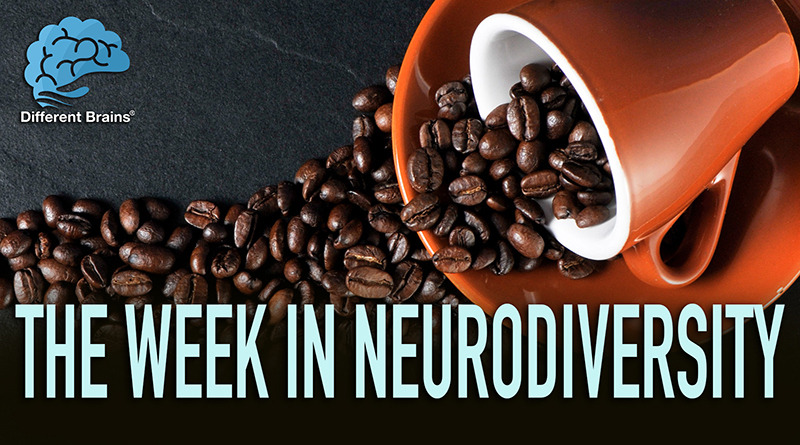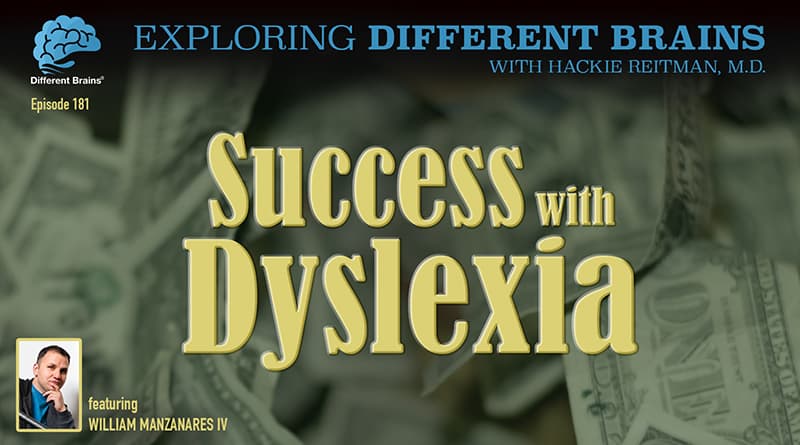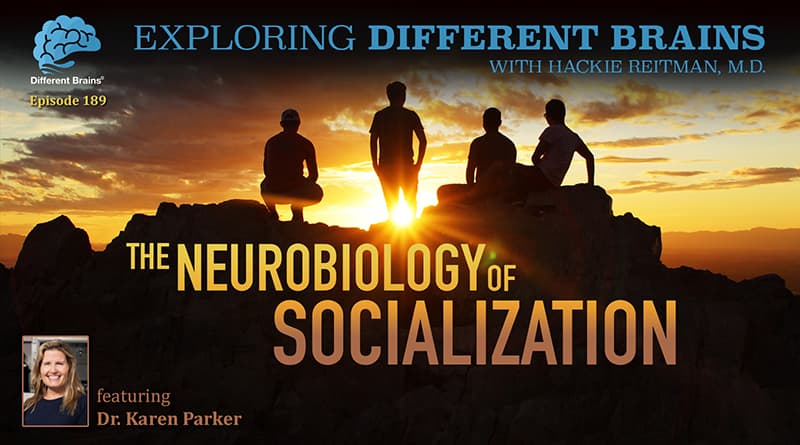Finding the Super Powers Within with Dr. April Lisbon | Episode 3: Richard D Williams

(13 minutes) Dr. April J. Lisbon believes the differences in our brains can really be our super powers. In this episode, she speaks with self-advocate Richard D. Williams. Rickard shares his journey with bipolar syndrome.
For more about Dr. Lisbon visit:
facebook.com/autismcoachstrategist
instagram.com/autismcoachstrategist
FULL TRANSCRIPTION
Welcoming Richard D. Williams
DR. APRIL LISBON (AL): Hello and welcome to another amazing episode of “Finding the Super Powers Within”. I am your host Dr. April J Lisbon. Today I am super excited to have Richard D Williams with us. Richard is a former special education teacher who taught children with emotional and behavioral disorders. Currently he is working with DCPS Charter and he will share a little bit more about that. And Richard also has an amazing superpower of bipolar disorder. Thank you so much for joining us Richard. How are you today?
RICHARD D. WILLIAMS (RW): I’m great. How are you?
AL: Wonderful. So, thinking through your story, can you tell us when you first learned about your superpower?
RW: I first learned about my superpower in the third grade when I wrote my first suicide note, and my parents had just talked to me about depression and what it meant, because in third grade I didn’t fully understand what it meant to be suicidal. I learned my bipolar diagnosis in December of 2014 when I checked myself into the psychiatric hospital after months, and months, and months of struggling. I needed help and I sought the help that I needed, and I came out with the diagnosis of bipolar 2 disorder.
AL: Now, for those of us who don’t know the different levels of bipolar disorder what does bipolar 2 mean?
RW: So bipolar 2, I still have my depression and I have what’s called hypomania so when I go manic I may not detach from reality fully, but I still get very energetic, grandiose thoughts, big dreams, big ideas, really energetic, I want to talk a lot, I want to do a lot, I want to say a lot. I might write a lot of papers or do a lot of homework or pick up a lot of new projects. I don’t sleep very much. Sometimes I’m kind of cranky and irritable versus with bipolar 1, I may start hallucinating or seeing things are hearing things that aren’t there. I have recently started having psychotic features with my hypomania but it’s still to the point where they’re still keeping it at a 2 and not a 1.
AL: Great! Thank you so much for sharing that with us. My next question is, when you think through, because now that you are an adult, so this is going to be a two-part question, when you think through your journey with bipolar disorder, can you share with us some of the trials as well as the triumphs that you experienced during your educational career, as well as your working profession?
RW: Yeah, so, educationally I learned back when I was in my master’s program, the differences between my highs and my lows. Some weeks doing that paper or just reading one chapter was extremely difficult and I couldn’t do it. I had to tell my professors, you know, something’s wrong. At that point I hadn’t been diagnosed. I just knew something was wrong and I was struggling, and they understood. And those triumphs would be, you know, going through those lows and not wanting to do anything and quite honestly some days not wanting to live if you’re depressed, and graduating with a 394 with my master’s program and then being accepted into a doctoral program and now I’m halfway done with that and have great professors who understand that, you know, some days I can do more than the others and some days I can do the whole week in a day, depending on the mood. So, some of those triumphs have been like that. I would say my biggest triumphs with working with students with emotional behavior disorder is being able to get it. I understand what it’s like to wake up and want to cry but I also understand what it’s like to wake up and want to celebrate and scream at the top of your lungs because everything is great and everything in between. And I love riding those highs and lows with my students and they help me as I help them.
AL: Oh wow, that is so great to hear, because once again, sometimes, and this is why I’m doing this show, because you are the prime example of what I’m talking about. Because you had an opportunity to work with students who have emotional behavioral difficulties, you understood when they were reaching the bottom, as well as when they were reaching their peak levels. So you know how to intervene, you know how to talk to them, you know how to create a space for them, because sometimes you know we as educators and as parents we want to intervene, and what I mean by intervene, is we want to save the day versus allowing them to feel the emotions, to feel some of those concerns, while giving them the independence and the freedom to go through versus just try to be that superhero for them
RW: Right.
AL: Thank you so much and I’m sure your students are upset that you are gone!
RW: They are!
AL: I thank you for sharing that, because that is just a constant reminder that we have to, even if, even if it hurts us as parents and we want to save our children, it is so important that they learn how to go through their process, because that’s how they learn to be independent. It’s so unfortunate, I will continue to stress, it so important that we afford them the ability to gain that independence as they learn about their diagnosis and as they move through it because they become their greatest advocate and we can step behind and just be the cheerleader behind them. So, my next question to you is, tell me one or two things that you would tell your younger self about this journey.
RW: It’s hard. You know, I wouldn’t want to lie to myself and say it’s going to be easy. It’s hard. It’s hard to wake up and not knowing how you going to feel or feeling one way at 9 o’clock and a different way 2 o’clock, but no matter what God gave you the strength to push through and you made it through 100% of your battles so far and you’re going to make it through 100% of your battles to keep going. So just keep your head down, push through, reach out, and know that you’re loved, no matter how lonely you feel. Know that you’re loved.
AL: That’s good. That’s good advice. Remember that you are always loved. Now I’m the parent of a neurodiverse learner and he does have some, he doesn’t have bipolar disorder, but also has generalized anxiety disorder so what is one thing, or maybe two things, that you would want to tell parents and advocates about helping an individual, whether it’s a young child, a tween, teen or young adult like yourself about bipolar disorder? How can we support you?
RW: I think you mentioned earlier, where I know it’s hard to want to put on the superhero cape, but you have to let us feel our feels but be there to listen to us. We may be down, we may not want to be around people, but sharing a couch on a down day, it’s so amazing, or going on a walk on a good day and just talking about all the great things that are going on in your head, that’s perfect. Just being that person that I can talk to or that someone can talk to no matter what I think that’s, that’s the most critical. So, you don’t have to save me, but just listen to me.
AL: I love that. My next question to you is this, what or how can your current or future colleagues support you in the workplace? What do they need to know about bipolar disorder? And how can they be your supporter?
RW: I think for the workplace, really just kind of learning to understand my body language and my queues, so if my shoulders are hunched and I’m kind of down it may be a day just to say, “Hey Richard!”, and let me go on about my way. I also may be scared to ask for help, because I feel like if I ask for help you’re going think that’s my disability or my superpower and it may just be me needing help. So, always being there and being supportive is really important.
AL: Beautiful. Now for our employers, because that’s a different, a different ball of wax to navigate. So, how can employers be more supportive of individuals with bipolar disorder?
RW: I think understanding the ebbs and flows of the highs and lows, understanding that I may be high when I first get the higher, and I’m pushing out 250% of work, but my low, I may only be able to 80%, and that has to be okay. Because in between the 80% and that 200% there’s so much more work that I can do on a day-to-day basis. You just got to give me that flexibility to work with the best, work the best way I can, with what I have that day.
AL: Absolutely, and I want to expand a little bit on that, because I love the way how you gave us percentages of 250% on a high day and maybe 80% on a low day, because for some employers, or even someone at HR, they may think “Oh my Gosh! What will be our bottom line? can he continue to do the work? Will we beat our production timeline?”. So, in that sense when you’re in the middle, is that timeline of work production still being made?
RW: Oh yes! I always keep myself, I’m a very goal-oriented person, so every day I set a goal. My top three things to do, my top three goals for the day I call them my bare minimums. And that’s for my work, my personal, and then my school life every day. And my work, make sure it’s done, I make sure my work is done at all times. I may miss a deadline by a day, but I’ve never missed anything more so than a day. I’ve always been able to push through because I know work is important, and I do have a job, and I have responsibilities and even if I’m low, Richard has to, has to show up for himself and for his job and for his students. I push through.
AL: I love it. You have to push through. And so, that’s tweet question that I wanted to start engaging you know and having that interactive conversation, because I’ve had the opportunity to speak with individuals from different HR agencies. That has been a concern that they have, is that when people who are autistic or have some other type of neurodiversity kind of learning style, can they do the work and meet deadlines, and meet production lines? And so, I thank you for being authentic. I thank you for being honest, because as you said, you may not get it on that Monday but Tuesday the work will get done. A final question before we end our interview is this, where do you see yourself 3 to 6 months from now after having done this interview with me?
RW: 3 to 6 months from now I see myself being more active in social media and spreading awareness about mental health, specifically bipolar. I, like your son, also have a diagnosis of generalized anxiety disorder, and speaking more on that because I feel like especially within the minority community and people of color, we don’t see us. And I want us to be seen and to know that it’s okay, you know, we have a global pandemic going on, emotions are raw, and I think we all just need a little extra love for our self and for others and that’s what I plan on doing.
AL: I love it. I think that is wonderful. I will support you however I can on that part of your journey. Thank you so much Richard for joining me today! Once again ladies and gentlemen, I am your host Dr. April J Lisbon, and this is another episode of “Finding the Super Powers Within”, where we talk with Millennials and Gen Z’s about their different super powers, and how they have learned to navigate their lives through their authentic voices. I hope that you enjoy this episode and I look forward to seeing you on the next broadcast! Bye bye!




